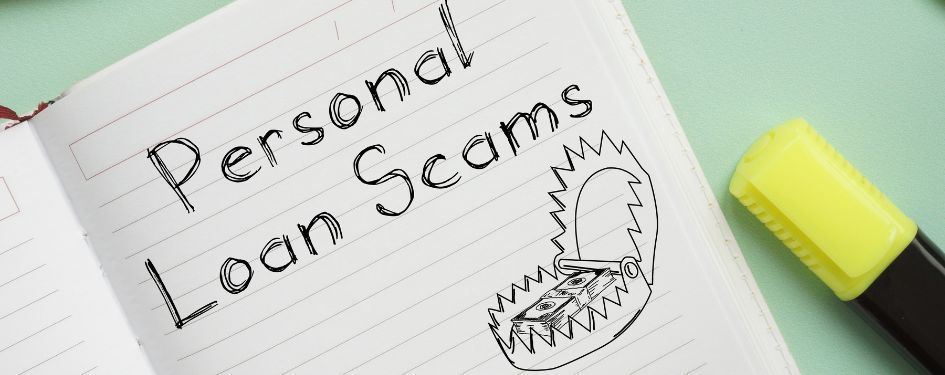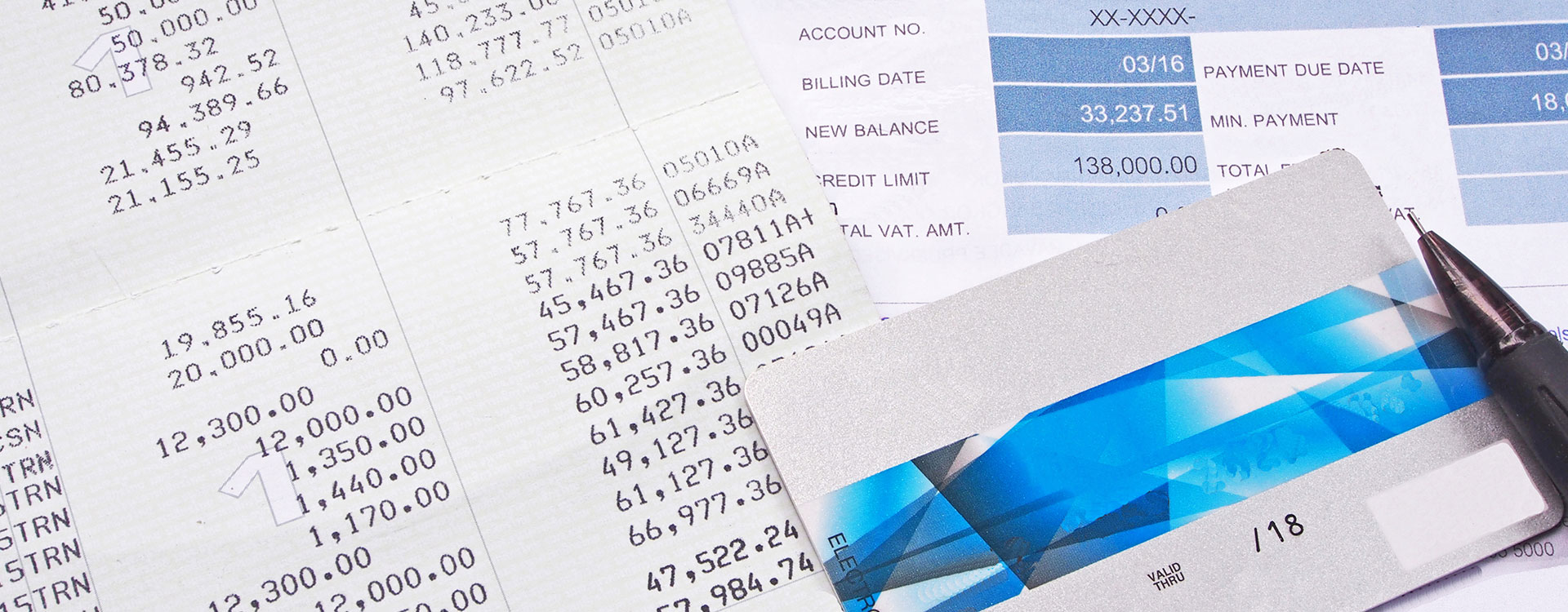If you want to avoid a personal loan scam, watch out for these 8 warning signs.
In 2021, consumers collectively lost nearly $5.8 billion to fraudulent practices, marking a staggering increase of over 70 percent from the previous year, as reported by the Federal Trade Commission.
And consumers continued to lose billions and billions more in 2022 and 2023.
Frauds targeting those in dire need or those likely to accept dubious offers are on the rise. Among these scams, personal loan scams have become increasingly prevalent, posing significant financial risks to unsuspecting individuals and couples.
KEY TAKEAWAYS:
- How to identify personal loan scams and protect yourself from becoming a victim.
- The tactics used by fraudsters, and the red flags to watch out for when offered a personal loan.
- The steps you can take to ensure you're dealing with a legitimate lending company.
How To Recognize The Warning Signs Of A Personal Loan Scam
A personal loan is a type of installment loan that allows you to borrow a set amount of money and repay it over time with fixed monthly payments.
Reputable lenders assess your creditworthiness by scrutinizing your credit history, often obtaining reports from major credit bureaus like Equifax, TransUnion, and Experian.
They do this to ensure that borrowers have a history of timely bill payments and responsible financial behavior.
Warning Sign #1: Guaranteed Approval
Personal loan scammers are not interested in your creditworthiness.
They often target high-risk borrowers who are more likely to default on loan payments, incurring exorbitant late fees and penalties.
Beware of lenders that guarantee loan approval with claims like:
- "Everyone is approved!"
- "We don't care about your past. You deserve a loan!"
- "Bad credit or no credit? No problem!"
While some reputable lenders do offer bad credit loans, they still consider various factors like your income, employment history, and education background before approving your loan application.
Thus, it's essential to work with a lender genuinely interested in your financial history, even if it's less than perfect.
Warning Sign #2: No State Registration
The Federal Trade Commission (FTC) mandates that lenders and loan brokers register in the states where they operate.
Legitimate lenders proudly display a list of states where they are legally authorized to conduct business on their websites. If a lender you're considering does not provide a list of registered states, it may be a red flag indicating a potential loan scam.
Verifying a lender's registration in your state is a crucial step in ensuring that you're dealing with a reputable company and not falling prey to fraudulent schemes.
Warning Sign #3: Demanding Upfront Payments
Some scammers insist on receiving upfront payments in the form of prepaid debit cards, gift cards, or banking information under the guise of insurance, collateral, or fees.
This is a classic scam tactic. While legitimate financial institutions may charge fees for services like application processing, appraisals, or credit reports, these fees are typically deducted from your loan amount.
Prepaid cards are a significant red flag as they are nearly as untraceable as cash, making it impossible to report them as stolen if provided to a fraudulent lender.
If you share your banking credentials, you can file a dispute with your bank or credit union, but it may take time to resolve, and there is no guarantee of recovering the stolen funds.
In contrast, a legitimate lender will never demand upfront payments to release your loan proceeds. When your loan is funded, you should expect a secure method of receiving funds, such as a wire transfer, direct deposit, or a check that you can deposit into your bank account.
Warning Sign #4: Unsolicited “Guaranteed” Loan Offers
If you receive a “guaranteed” loan offer via phone, mail, or door-to-door solicitation, exercise caution, because no legitimate lender will offer a guaranteed loan.
According to the FTC, it's illegal for companies to offer loans over the phone and request payment before delivering the loan. This violates the Telemarketing Sales Rule.
However, legitimate lenders may send general advertisements to consumers via mail and email.
Some scammers go to great lengths to impersonate legitimate lenders, even using their names. They might even go to great lengths to manipulate caller ID information to deceive you.
To protect yourself, ignore unsolicited offers that seem suspicious and always contact the lender directly through their secure website or by calling their official customer service hotline.
If the lender has no record of reaching out to you, it's a clear indication that you were dealing with a scammer.
Warning Sign #5: No Physical Address For The Lender
Every legitimate lender should provide a physical address, which you can verify using tools like Google Maps.
Some scammers list addresses that lead to vacant lots or non-existent locations. Therefore, it's crucial to ensure that the lender's address is legitimate and traceable. Fraudulent businesses often operate in the shadows to evade legal consequences.
In summary, do not engage with any company that cannot provide a verifiable physical address. Always verify the address's authenticity before proceeding with any loan application.
Warning Sign #6: Manipulative And High Pressure Tactics
Beware of lenders who use high-pressure tactics to rush you into making immediate decisions.
Scammers often impose an immediate deadline for accepting a loan offer, claiming that the offer will expire rapidly, sometimes within a day.
They may even threaten adverse consequences, such as revoking your driver's license or filing a lawsuit if you hesitate to act quickly.
Reputable lenders provide ample time for borrowers to review loan offers, conduct research and perform their due diligence, and make informed decisions.
High-pressure tactics are typically employed to prevent you from investigating the legitimacy of the offer, revealing the scam behind the façade.
In conclusion, avoid any and all loan offers that pressure you to make hasty decisions. Legitimate lenders provide sufficient time for you to evaluate and accept a loan offer.
Warning Sign #7: An Unsecured Business Website
When considering a loan, especially during the application process, ensure that the lender's website is secure.
Look for "https" at the beginning of the website address, along with a padlock icon. These indicators signify that the connection is secure and your data is protected.
A lender that does not prioritize website security and requests sensitive information may not have your privacy or security in mind. Always opt for legitimate lenders with secured websites to safeguard your personal information.
Warning Sign #8: An Unbelievable Offer
If a personal loan offer seems too good to be true, it probably is.
Legitimate lenders will not contact you out of the blue with irresistible loan offers. Qualifying for a loan with an unbelievably low interest rate typically requires a formal application and a hard credit inquiry.
Additionally, be wary of unsolicited letters from random banks promising instant approval without a formal application process. Offers claiming lightning-fast disbursement of loan proceeds should also raise suspicions.
In essence, if a personal loan offer sounds too good to be true, exercise caution, as it may be a scam.
Common Types Of Loan Scams
Scammers offering low-cost loans may request hundreds or thousands of dollars in upfront fees.
Once they receive these fees, they vanish without providing any loan funds. Legitimate lenders do charge fees for services like application processing or credit reports, but these are deducted from your loan amount, not paid upfront.
The No-Credit-Check Scam
While some legitimate lenders offer loans to individuals with poor credit, scammers promise loans without conducting credit checks.
This is a significant red flag, as your credit history plays a crucial role in assessing your creditworthiness.
Beware of offers that claim to provide funds without assessing your credit history.
The Private Student Loan Forgiveness Scam
The federal government offers student loan forgiveness programs for federal student loans.
If a company approaches you claiming to forgive private student loans, it's likely a scam.
Legitimate loan forgiveness programs are specific to federal loans and are not applicable to private loans.
The Debt Consolidation Scam
Debt consolidation can help streamline your debt repayment process and save you money.
However, some scammers employ pushy tactics or advise you to cease contact with your creditors, indicating a potential scam.
Legitimate debt consolidation lenders like Credit9 are transparent and cooperative with your creditors to find viable solutions.
Who Is At Risk For Personal Loan Scams?
Scammers often target vulnerable individuals, including those with significant debt, elderly individuals, and those with bad credit.
People with poor credit are particularly susceptible to scams, as they may be enticed by the promise of no-credit-check loans.
Scammers may purchase lists of individuals who have searched or applied for such loan products online, making them easy targets.
If you fall into a high-risk category, it's essential to remain vigilant and exercise caution when considering loan offers that seem too good to be true.
Contact your state's attorney general or relevant authorities if you are unsure about the legitimacy of a lender.
What To Do If You've Been Scammed
No one wishes to fall victim to fraud, but it can happen to anyone.
If you suspect that you've been scammed, take the five following steps:
- Step1: Gather Documentation - Collect emails, screenshots, or any other evidence that can support your case.
- Step 2: Contact Local Law Enforcement - File a police report to create an official record of the scam.
- Step 3: Reach Out to Oversight Agencies - Contact your state attorney general's office, the FBI, the FTC, and the Better Business Bureau to report the scam and aid in protecting others.
- Step 4: Share Your Experience - Discuss your situation with family and friends to raise awareness and prevent others from falling victim to similar scams.
- Step 5: Place a Fraud Alert - Notify one of the major credit bureaus (Experian, TransUnion, or Equifax) to place a fraud alert on your credit report, ensuring that creditors verify your identity before extending new credit.
How To Identify A Legitimate Loan Company Or Lender
Even if you have below-average credit, numerous legitimate lenders offer loans to borrowers in need, regardless of their credit history.
When searching for a reputable lender, consider these three factors:
- Contact Information - A legitimate lender provides a phone number, email address, and physical address, all of which should be easily accessible on their website.
- Online Reviews - Check online reviews on platforms like Google and Yelp to gauge the experiences of other borrowers.
- Registration - Ensure that the lender is registered with state agencies, indicating their legal authorization to provide loans in your state.
Remember that guaranteed approvals, lack of licensure, upfront payment demands, and unsolicited loan offers are warning signs of a personal loan scam.
Prioritize working with lenders that exhibit transparency and credibility.
Final Thoughts On How To Spot A Personal Loan Scam
In the ever-evolving landscape of personal loan scams, it's crucial to remain informed and vigilant.
Recognizing the warning signs, assessing communication and legitimacy, prioritizing website security, and understanding common scam types can help protect you from falling victim to fraudulent lending schemes.
By following the guidelines outlined above, you can confidently identify legitimate lenders and make informed financial decisions.
Remember that if an offer sounds too good to be true, it's essential to conduct due diligence to ensure your financial security. Avoid scams by choosing to work with reputable lenders who prioritize your financial well-being.
In your pursuit of financial stability, knowledge is your most powerful tool. Stay informed, stay cautious, and safeguard your financial future.
How Credit9 Can Help You
At Credit9, we offer loan options that could provide you with the financial solution that works best for you.
Since 2018, Credit9 has provided over $460 Million in loans to over 36,000 of our customers, and we’re confident we can help you too.
For more information about Credit9’s unique debt consolidation services, contact us today to see how we can help you consolidate your debts and receive a free, no-obligation, and fully-customized Credit9 loan solution!



